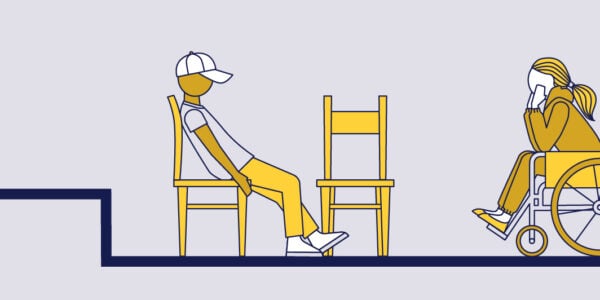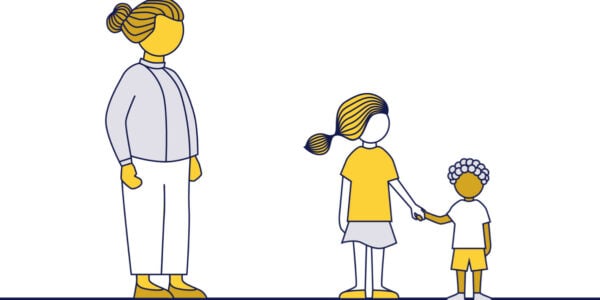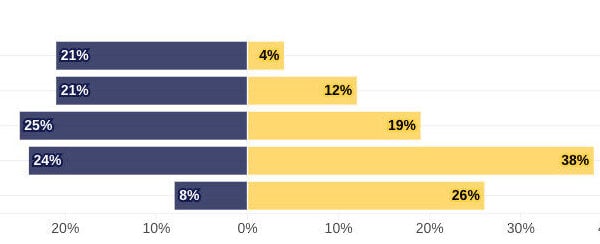October marks Kinship care week! Kinship care is when a child is raised by relatives or friends, because their parents are unable to do so.
According to the 2021 census, roughly 121,000 children were living in kinship care, and the majority of these children (59%) lived with at least one grandparent. The census captures information from nearly all households in England and Wales, so provides a picture of most children living in kinship care under a variety of different legal arrangements (such as kinship foster carers, special guardianship orders, or other informal arrangements that may not go through the family courts).
We know that kinship families step up to take on the care of a child, bringing hope, love and stability and that they face a number of challenges. Kinship carers are older than parental carers on average, they experience poorer health and higher levels of disability, as well as lower levels of employment. One third of kinship carers are in social rented housing compared to one fifth of parental households. For ethnic minority kinship families in particular, there remains significant gaps in understanding about different groups’ experiences of kinship care, how adults might become carers and the type of support they receive (Tah & Selwyn, 2025).
Census data shows that there are differences in the proportion of children in kinship care according to the children’s ethnicity. Black and mixed ethnicity children are overrepresented in kinship care; 6.1% of children in kinship care are Black (including Black, Black British, Caribbean or African), in comparison to 4.7% of children living with parents, and 8.7% of children in kinship care are children with a mixed ethnic background, compared to 6.9% of children living with parents.
However, there is also variation within the mixed ethnicity group. White and Black Caribbean children are particularly overrepresented, with 3.6% living in kinship care in comparison to 1.9% living with parents, whereas White and Asian children are underrepresented (1.8% vs. 2.2% living with parents). This mirrors previous research in the family justice system, which has highlighted that Black children and children from mixed ethnic groups are overrepresented in both the family courts, and in the care population, while Asian children are underrepresented (Alrouh et al., 2022).
More charts about kinship families can be found on our data tracker.







